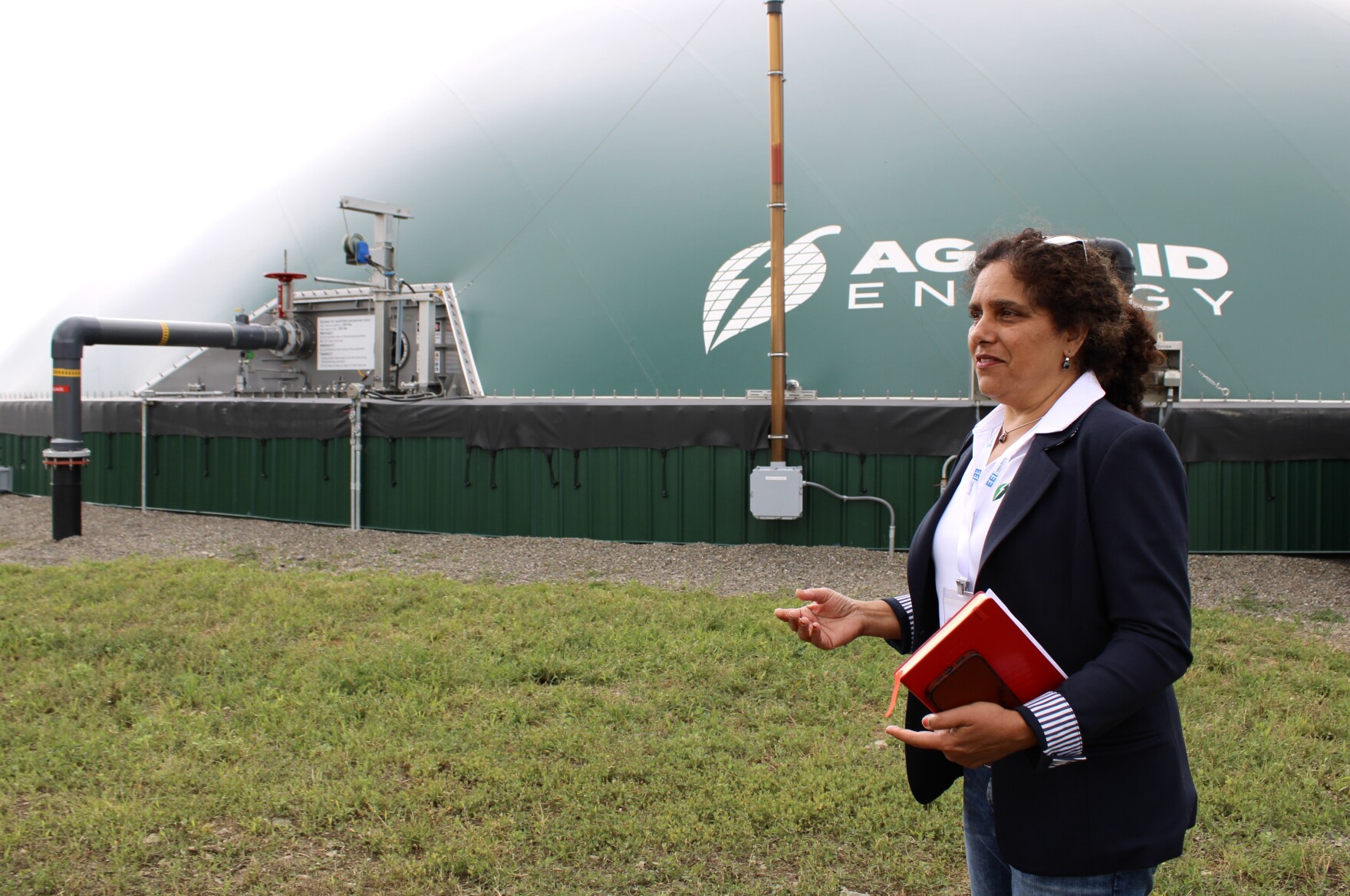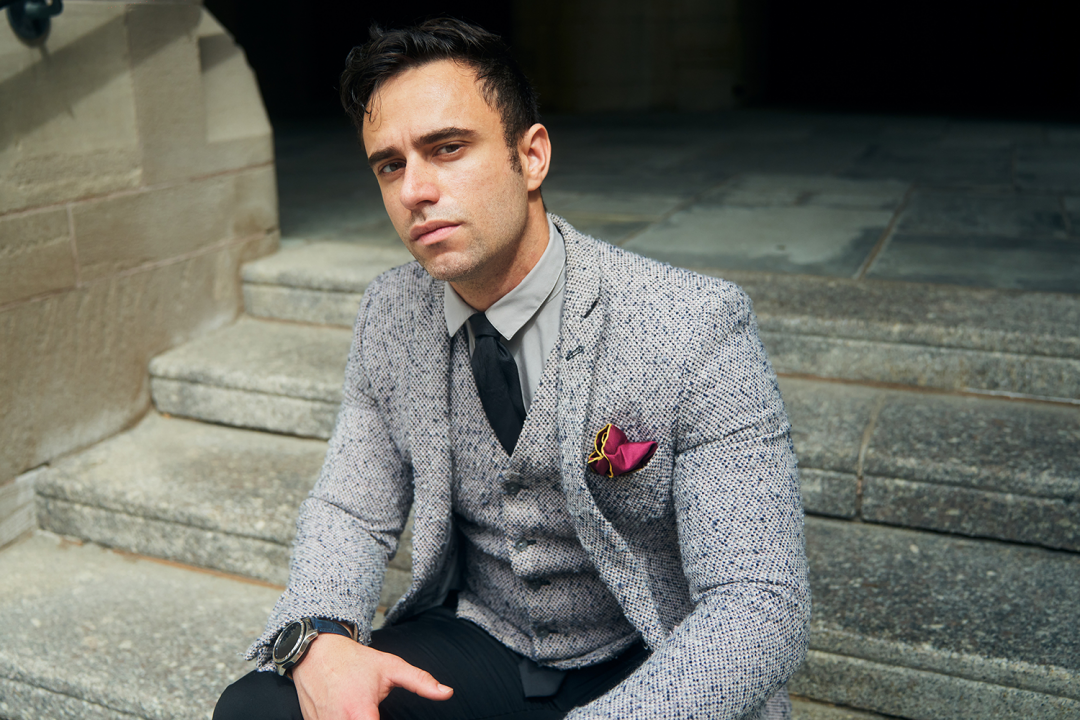The School of Engineering launched a new teacher enrichment program over the summer, funded by the National Science Foundation (NSF), which immerses middle and high school teachers in the super-hot arena of energy research at the Storrs campus. TheJoule Fellows Program is a five-week Research Experiences for Teachers (RET) program that kicked off July 13th with the arrival of 11 teachers representing nine schools across Connecticut, Massachusetts and Rhode Island. Dean of Engineering Mun Y. Choi, Associate Dean for Research & Strategic Initiatives Kazem Kazerounian, and Assistant Dean for Undergraduate Education and Diversity Marty Wood developed the Joule Fellows Program, which netted more than $440,000 in funding across the full three years of the program.
 The cornerstone of the RET program is to immerse teachers in energy engineering research, where they may gain familiarity with engineering principles, applications and a variety of engineering careers. The ongoing challenge to supply the nation’s employers with a sufficient number of trained engineers begins much lower down the educational pipeline — middle and high schools — when students are first considering where their education and interests will take them. Because most science and math teachers are unfamiliar with engineering, and engineering is rarely included in pre-college curriculums, collegiate engineering programs nationwide continue to look for ways to attract top students. Teachers are a vital point of engagement.
The cornerstone of the RET program is to immerse teachers in energy engineering research, where they may gain familiarity with engineering principles, applications and a variety of engineering careers. The ongoing challenge to supply the nation’s employers with a sufficient number of trained engineers begins much lower down the educational pipeline — middle and high schools — when students are first considering where their education and interests will take them. Because most science and math teachers are unfamiliar with engineering, and engineering is rarely included in pre-college curriculums, collegiate engineering programs nationwide continue to look for ways to attract top students. Teachers are a vital point of engagement.
Faculty members who hosted Joule Fellows included Drs. Richard Parnas, William Mustain, Benjamin Wilhite and Alevtina Smirnova of Chemical, Materials & Biomolecular Engineering; and Drs. Michael Renfro, Tianfeng Lu, Chengyu Cao, Ugur Pasaogullari, Wilson Chiu, Baki Cetegen and Shiva Kotha of Mechanical Engineering.
UConn’s Joule Fellows Program began with general introductions to core engineering tools, including measurement and data acquisition, data analysis and presentation, computing tools, and an overview of energy research. Tours of the UConn cogeneration facility and a wastewater treatment plant strengthened their appreciation for the intricacies of renewable energy production. Professional education and mentoring facets also include seminars on effective technology education, applied engineering ethics, proposal writing and ways to spark creative thinking. Zahra Shahbazi, a doctoral student co-advised by Dr. Horea Ilies and Dr. Kazerounian, shepherded the Joule Fellows through their activities during the five weeks and provided troubleshooting as well as mentorship.
 The Joule Fellows were embedded in engineering laboratories, where they worked side-by-side with faculty and graduate students engaged in ongoing energy research in such areas as biofuels production, various aspects of fuel cells and fuel cell membranes, flame dynamics in power generation and supercritical fluids.
The Joule Fellows were embedded in engineering laboratories, where they worked side-by-side with faculty and graduate students engaged in ongoing energy research in such areas as biofuels production, various aspects of fuel cells and fuel cell membranes, flame dynamics in power generation and supercritical fluids.
Among the participating teachers was Aaron Clark, a recent UConn graduate (B.S. Education ’07; M.A. Special Education ’08), who teaches grade 9-12 math and physics at the Greater Hartford Academy of Math and Science. His classroom includes students who have reading disabilities. Mr. Clark, who spent a month in the laboratory of Dr. Alevtina “Alla” Smirnova of the Center for Clean Energy Engineering, participated in research involving aerogel catalysts for use in PEM fuel cells. He said that he hoped to integrate some of the lessons learned, and to impart an enthusiasm for science, into the classroom lessons at his magnet school. “Studying fuel cells really got me excited, and I think the subject will be exciting for them as well. Energy is the future.”
He said, “Working in Alla’s lab, I found that much of the core science was over my head. The experience really sensitized me to the challenges my students face every day as they struggle to understand tough subject matter, follow the lessons and stay up to date. It’s very challenging.”
Deborah Tupek-Mendrala, who teaches grade 10-12 math at Belchertown High School, MA, found the Joule Fellows experience rewarding despite the 45-minute commute. One “aha moment” struck when she learned that just 10% of students pursuing graduate studies in the U.S. are American. “As a society, we don’t really encourage our kids to go to graduate school. We urge them to get a good education and a good job. In other cultures, young people are encouraged to pursue advanced degrees. As a teacher, I see this disparity as a bit ominous.”
Working in the laboratory of Dr. Michael Renfro, Ms. Tupek-Mendrala gained insight into research aimed at improving flame stability in fighter jets, along with a novel method for cleaning dirt-encrusted engine blades using a laser. She marveled at the level of dedication, helpfulness and knowledge of doctoral students Mark Majewski and Kristin Vaughan, and M.S. student Naison Mastrocola. “It’s amazing how much they have to know. Not just science and engineering, but also computer programming, how to mill parts, how to calibrate a laser. . .it’s just an awesome amount of knowhow.” An important take-away for her was “real-world applications of math that I can integrate into my instruction. Students always ask, ‘Why do we have to learn this? We’ll never use it in real life.’ Now I can give them genuine examples of how math is used in countless ways to solve problems, such as how to improve aircraft safety and performance, for example.”
 Some Joule Fellows were surprised by the uncertainty, repetition and obstacles that often accompany academic research.
Some Joule Fellows were surprised by the uncertainty, repetition and obstacles that often accompany academic research.
Annie Perkins, an eighth grade science teacher at Ashford Middle School, previously participated in the da Vinci Project at UConn, another NSF-funded program aimed at familiarizing math and science teachers with engineering principles. Embedded in the laboratory of Dr. Shiva Kotha, Mrs. Perkins spent much of her time investigating which algal strains offered greatest promise as feedstock for biodiesel. She also studied the design and construction of microfluidic channels.
“Dr. Kotha gave me a great deal of freedom to use the resources in his lab to explore his idea of growing algae in microfluidic devices. I was surprised at how much repetition and perseverance was required to manufacture simple prototypes of a working microfluidic channel. Engineers are great problem solvers and if at first their measuring devices or machines don’t work, they try, try again.” Because algae were not a feedstock under investigation in Dr. Kotha’s lab, she visited other labs at UConn, Yale and the University of New Haven that are investigating high-lipid algae strains or genetically modifying algae to achieve high lipid (fat) content.
Based on her Joule Fellows experience, Mrs. Perkins said she is planning to apply for a grant to set up an algae-to-biodiesel mini-lab in her classroom. “I will also integrate the underlying problem-solving attitude that was demonstrated so frequently in all the labs we had the privilege of visiting.”
Her husband, Douglas Perkins, who teaches enrichment math, science and technology courses in the Mansfield Middle School (CT), also participated in the Joule Fellows Program and, like his wife, is a da Vinci Project veteran. Working in the laboratory of Dr. Benjamin Wilhite, Mr. Perkins’ efforts centered on understanding the science behind membrane micro-reactors sufficiently to move the main research forward. He remarked, “The thing that I was struck by is the problem solving that must go on because nobody is telling the graduate students exactly what to do. They are having to problem solve and work collaboratively along the way to move their research forward.” This experience underpins his intention to ensure that his labs have an open ended, problem solving component.
Dr. Kazerounian said “The larger aim of the Joule Fellows Program is to establish long-term, dynamic relationships with the participating teachers and their schools, to foster an inviting and open atmosphere that enables the teachers to serve as both active contributors to engineering research and education and as ambassadors for the engineering community.”
The Joule Fellows Program hosted 11 teachers in its first year. Mr. Clark, Mr. Perkins, Mrs. Perkins and Ms. Tupek-Mendrala were joined by Chinma Uche and James Armstrong of the Greater Hartford Academy of Math and Science magnet school; Phu Nguyen, a math teacher at Claremont Academy (Worcester, MA); physics teachers David Tavilla of Media Communications Technical High School (Boston) and Christopher Martineau of Cranston High School West (Cranston, RI); Uche Uche, a biology and chemistry teacher at Bulkeley High School, and Phillip Isner, a biology teacher at Bloomfield High School.


